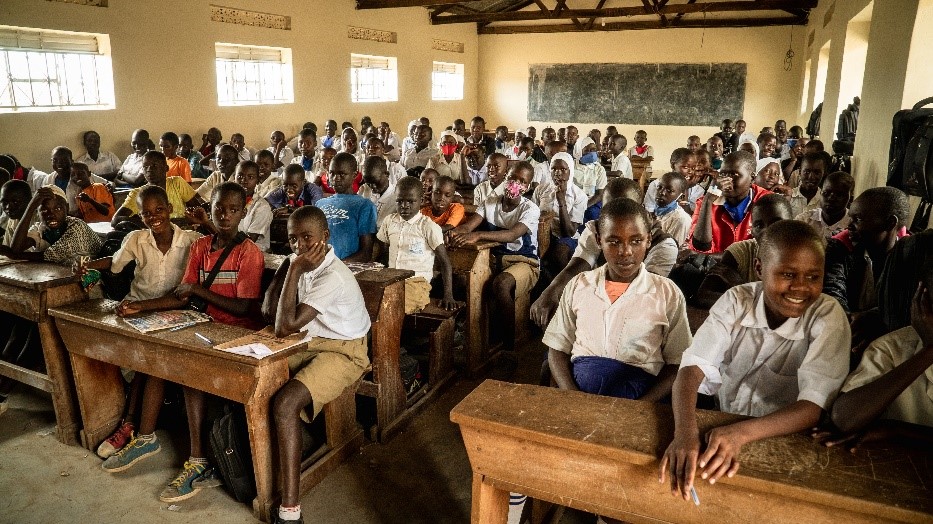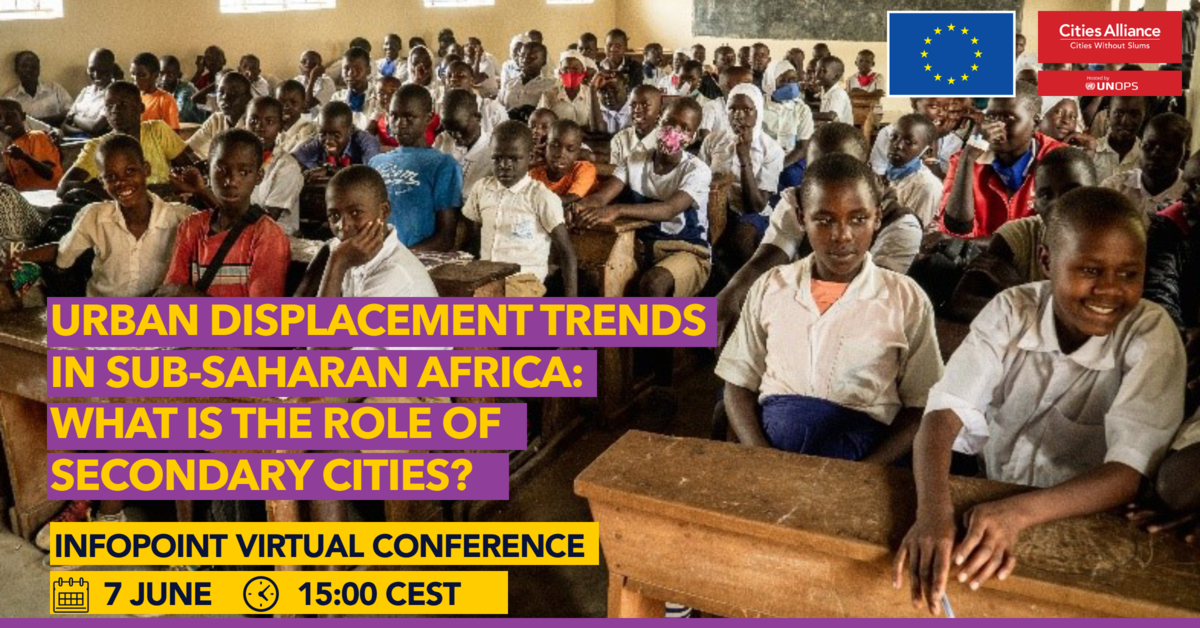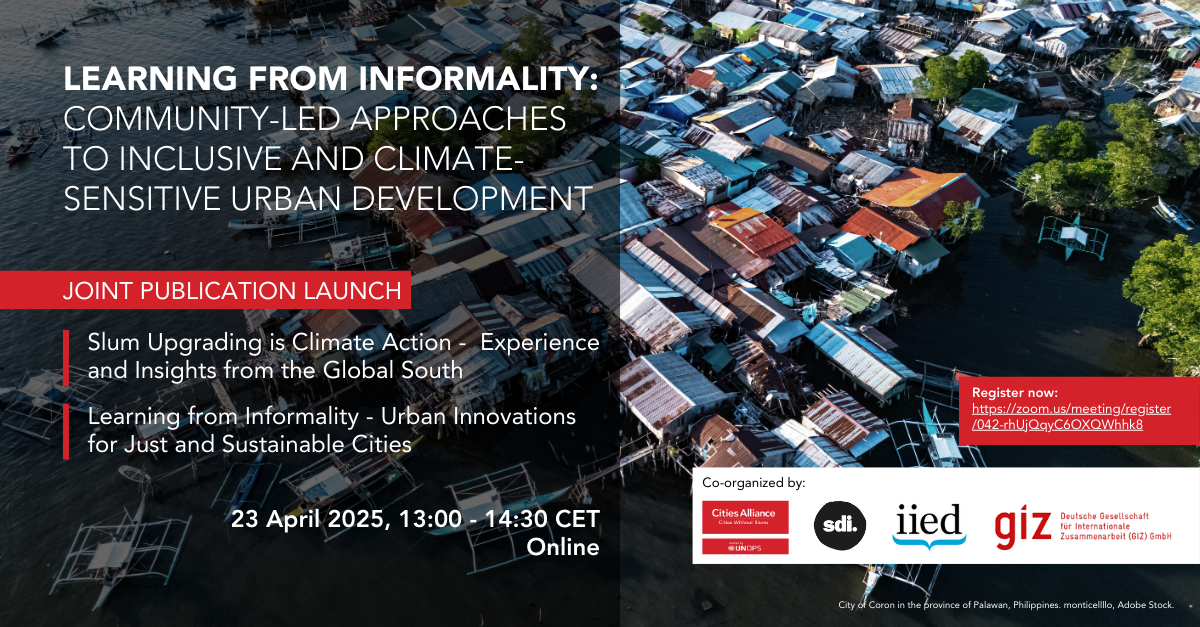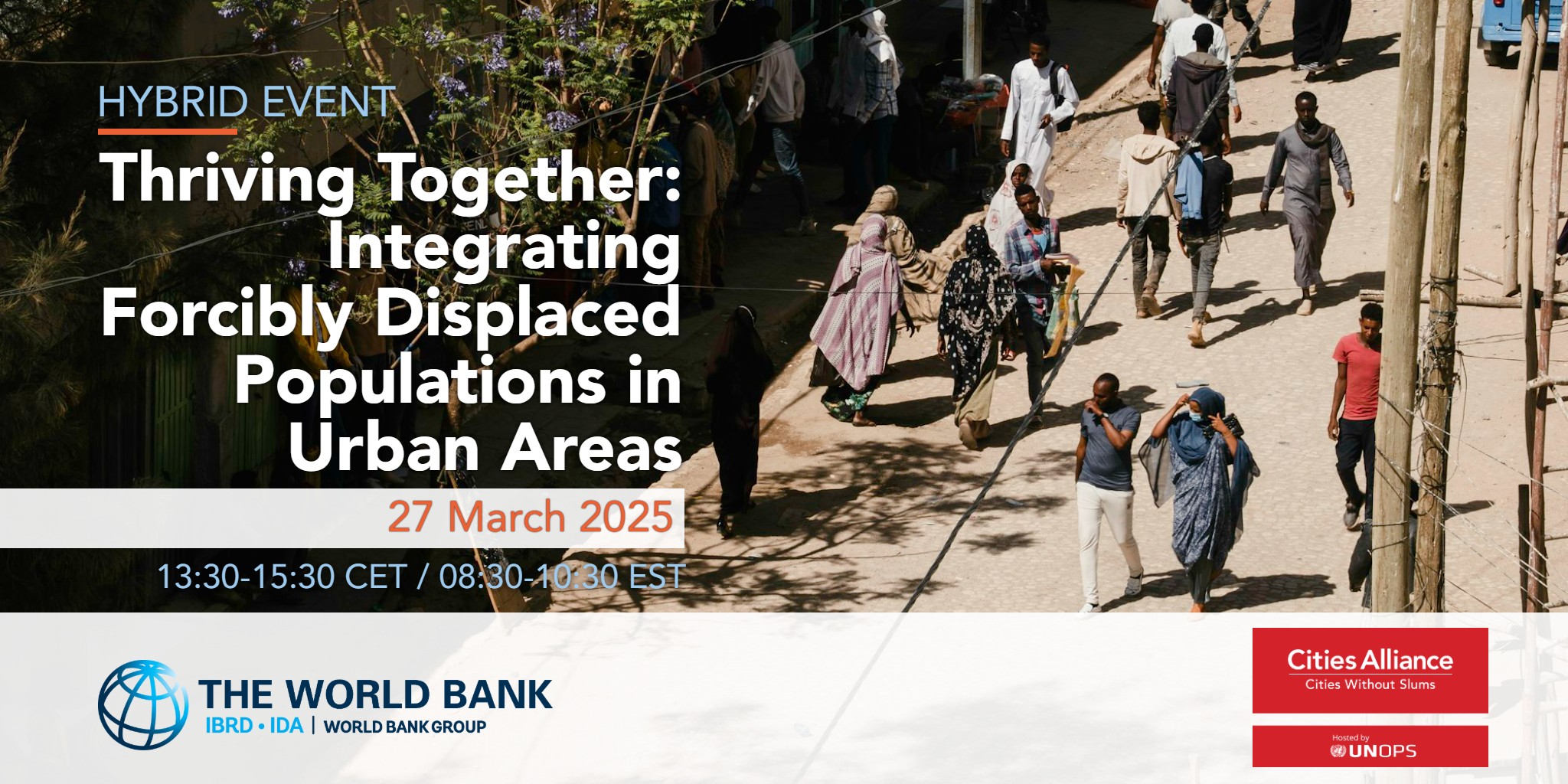- Who We Are
- How We Work
- Regional / Country Initiatives
- Legacy
- Core Themes
- Working Groups
- Portfolio & Results
- Newsroom
- Resources
Urban Displacement in Sub-Saharan Africa: The Role of Secondary Cities

The EU Directorate-General for International Partnerships and Cities Alliance organise the InfoPoint Conference Urban Displacement Trends in Sub-Saharan Africa: What is the Role of Secondary Cities?
This online conference presents the results of the project Comprehensive Refugee Response Framework (CRRF): Inclusive Urban Development and Mobility Action funded by the European Union Trust Fund (EUTF) for Africa. It will highlight the important role that cities play in an era of increased and protracted displacement, migration, and rapid urbanisation. The discussion will focus on local authorities and their role in shaping and building inclusive, resilient futures for their citizens.
The CRRF Inclusive Urban Development and Mobility project was divided into three components:
- A regional dialogue: including representatives from secondary cities to foster peer networks and knowledge exchanges on the challenges and opportunities resulting from urban displacement in the context of urbanisation, implemented by Cities Alliance.
- A pilot project: providing direct support to Koboko Municipality in Uganda to address pre-existing low coverage of basic services and a high concentration of refugees. ACAV provided technical support to Koboko Municipality to develop and implement inclusive participatory and sustainable strategies for urban planning and service delivery.
- A similar pilot: in Assosa, Ethiopia implemented by the International Rescue Committee.
All three components aimed to equip secondary cities with tools to increase the safety and well-being of displaced populations and their host communities in urban and peri-urban settings. By providing knowledge and technical assistance to local authorities and by increasing the participation of displaced persons and host communities in the city’s economic and social life, the Action aimed to reduce inequalities between these groups and improve their living conditions.
Through a live stream connection, participants will be able to learn how Koboko Municipality in northern Uganda has used direct support from the EU Action to improve municipal planning and delivery of basic services.
The programme has prioritised strengthening existing local structures instead of creating parallel support systems and directly involved urban authorities in promoting the inclusion of displaced persons in the city's economic and social life.
Speakers:
- Jorge Pereiro Pinon, Head of Sector INTPA A2 regional and multi-country programming in Sub-Saharan Africa
- Hon. Sanya Wilson, Mayor of Koboko Municipality
- Malish Bonjira Asu, Executive Director, South Sudanese Refugee Association, Koboko
- Harriet Dozu, Social Worker and Host Community Representative, Koboko
- Laura Lima, Ph.D, Head of Global Programmes, Cities Alliance
- Katie Ogwang, Senior Protection Officer, UNHCR Regional Bureau for East, Horn & Great Lakes Regions of Africa
- Claire Roberts Lamont, Multi-Stakeholder Partnerships-Cities, UNHCR
Moderator: Samuel Mabala, Country Urban Advisor Uganda, Cities Alliance





